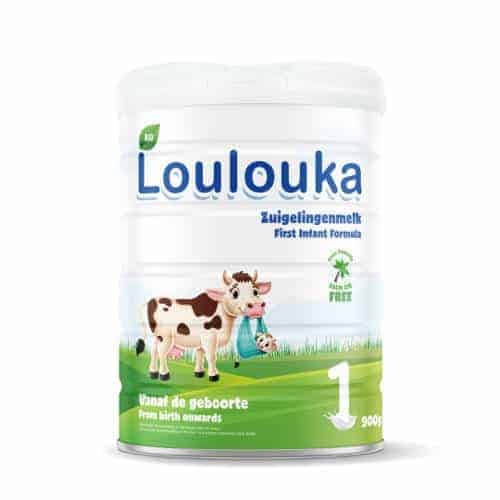Let’s Begin Here: You’re Allowed to Care About Ingredients
If you’re reading this, you’re probably not just looking for “a formula that works.” You’re looking for a formula that feels right—in your gut, in your values, and in your baby’s body.
More and more families are rethinking traditional formula ingredients—especially seed oils like soy, corn, and canola. Whether it’s about supporting digestion, avoiding ultra-processed fats, or just following what feels clean and simple, it makes sense to want options that reflect those choices.
The good news? They exist. The three formulas below avoid seed oils entirely (or nearly), and focus on what babies actually need—stable fats, easy digestion, and a structure that’s closer to breast milk. These aren’t trend picks. They’re body-led, gentle choices that many families are using with confidence.
Three Gentle Options Without Seed Oils
| Why You Might Choose It | Formula | What Makes It Different | Where to Find It |
|---|---|---|---|
| You want a U.S.-made option that skips seed oils | Bobbie Organic Infant Formula (Whole Milk) | Whole milk fat, no soy, corn, or palm oils | Bobbie – Amazon |
| Your baby struggles with digestion | Kendamil Organic First Infant Milk | Whole milk, no palm or canola oils, prebiotics for gut comfort | Kendamil – Amazon |
| You prefer a European formula with no palm oil | Loulouka Stage 1 Organic Formula | Coconut oil base, low PUFA content, clean Swiss standards | Loulouka – Online |
Bobbie Organic Infant Formula (Whole Milk)
Creamy taste. Clean ingredients. No soy, corn, or palm oils.
Why families love it:
This is one of the few U.S.-made formulas that skips all seed oils and meets European-style DHA levels. It’s made with organic whole milk, so your baby gets natural milk fat—including MFGM (milk fat globule membrane), which supports brain and immune development.
What’s inside:
- Organic whole milk with MFGM
- Organic coconut and sunflower oil
- DHA from algae, iron, and full nutrient panel
What parents notice:
Softer poops. Fewer tummy troubles. Babies seem more content during and after feeds. And the creamy taste? It helps bottle-feeding feel smoother—especially for babies transitioning from breast milk.
Why it helps:
Milk fat is what babies were built to digest. When formulas lean on stable fats like coconut oil (instead of seed oils or palm), digestion tends to be smoother and nutrient absorption may improve.
Kendamil Organic First Infant Milk
Whole milk + prebiotics = happy bellies
Why families choose it:
Kendamil takes a gentle, whole-milk approach and skips all palm, soy, and canola oils. Instead, it uses coconut oil and sunflower oil, plus natural prebiotics to support a developing gut. It’s vegetarian, non-GMO, and loved across the UK and Europe.
What’s inside:
- Organic whole milk (from grass-fed cows)
- Coconut and sunflower oil
- Prebiotics (GOS), DHA, and ARA
What parents notice:
Babies tend to have fewer issues with reflux or constipation. Parents often describe it as “creamy” and “neutral-smelling,” which helps babies adjust easily. It’s especially helpful for babies who seem unsettled after other formulas.
Why it helps:
Whole milk gives a fat profile closer to breast milk. The absence of palm oil can lead to softer stools, and the added GOS prebiotics feed good gut bacteria—both big wins for digestion.
Loulouka Stage 1 Organic Formula
Swiss-made formula without palm or soy oils
Why families love it:
Loulouka was created for parents looking for old-school simplicity: whole milk, clean sourcing, and a fat blend that avoids seed oils like soy and corn. It uses coconut oil as the primary fat, and contains only trace amounts of canola oil in a stable blend.
What’s inside:
- Organic whole milk
- Coconut and sunflower oil
- DHA, ARA, and lactose as sole carb
What parents notice:
Smooth digestion, soft stools, and babies who happily accept the bottle. Parents often describe this formula as one that just works without drama, even for sensitive babies.
Why it helps:
Coconut oil is rich in medium-chain triglycerides (MCTs), which are easier to absorb. And without palm oil, calcium is absorbed more efficiently—something that supports bone development in the first year.
Final Thoughts: Formula That Feels Aligned
Choosing a formula can feel like decoding a label in another language. You can also try other plant-based formulas if your baby rejects any of the ones above. And when you’re trying to skip seed oils, it’s easy to feel like you’re swimming upstream.
But these three formulas show that you can nourish your baby with clean, stable fats that are easier to digest and closer to nature’s blueprint.
You don’t have to follow trends. You don’t have to choose the one that “everyone else uses.” You just need something your baby can digest, that your gut feels good about, and that gives both of you peace during feeding time.
That’s not a compromise. That’s wisdom.
Citations
- Gallier, S., Tolenaars, L., & Prosser, C. (2020). Whole Goat Milk as a Source of Fat and Milk Fat Globule Membrane in Infant Formula. Nutrients, 12. https://doi.org/10.3390/nu12113486
- Van Leeuwen, S. et al. (2020). Goat Milk Oligosaccharides: Their Diversity, Quantity, and Functional Properties in Comparison to Human Milk Oligosaccharides. J Agric Food Chem, 68. https://doi.org/10.1021/acs.jafc.0c03766
- Maryniak, N. et al. (2022). Alternatives to Cow’s Milk-Based Infant Formulas in the Prevention and Management of Cow’s Milk Allergy. Foods, 11. https://doi.org/10.3390/foods11070926


